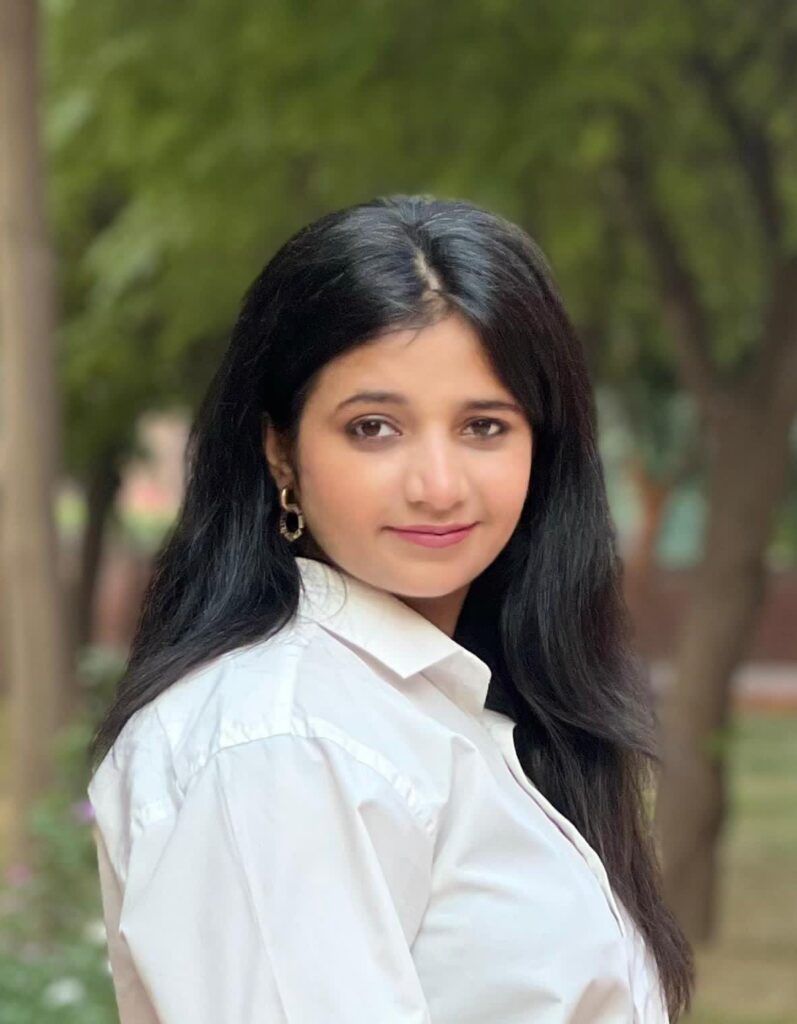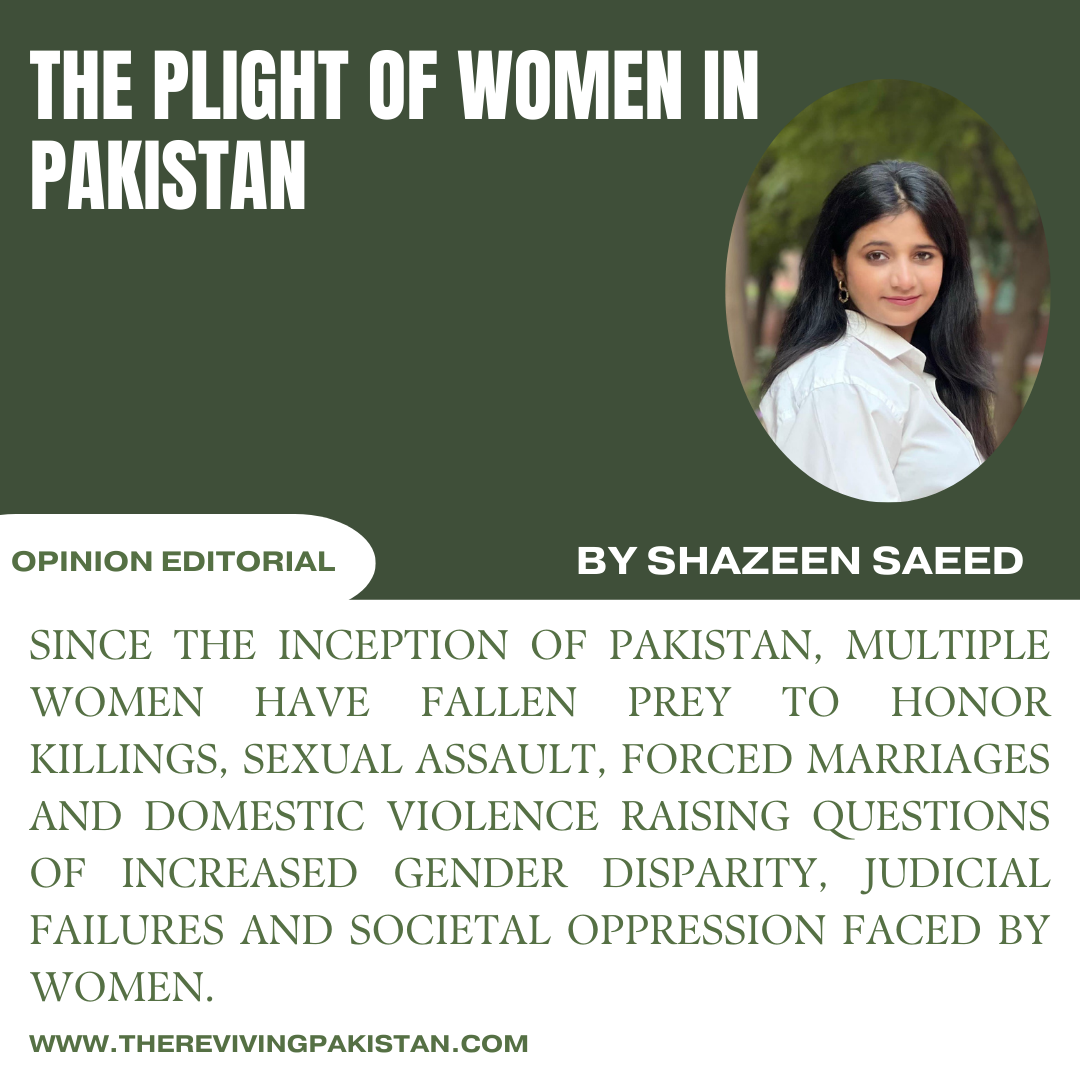Table of Contents

Shazeen Saeed
Author is a women rights activist and climate advocate. She is a student of Beaconhouse National University(BNU).
Pakistan, a land once sanctimonious and sacred, is wounded with the scars and burns of thousands of women whose voices were stifled, faces were disfigured and bodies assaulted. Since the inception of Pakistan, multiple women have fallen prey to honor killings, sexual assault, forced marriages and domestic violence raising questions of increased gender disparity, judicial failures and societal oppression faced by women. According to data and statistics, 1000 honour killings cases occur in Pakistan every year. Meanwhile, the question of jeopardizing women rights remained there.
In this article, I will be discussing a major case that made the whole world question the status of women in our society, which posed a question we all were afraid of: “is basic human decency actually dead when it comes to women?” I will also pinpoint the role that civil society and judiciary played in regard to these cases. I will also shed light on how these women became a sign of resistance against atrocities and societal oppression.
Qandeel Baloch:
Qandeel Baloch, a woman of vigor and courage, a social media star and a strong feminist. A girl with a dream of achieving more and becoming a star, who broke the norms of conservative family to follow her aspirations, became a victim of honor-killing by none other than her own brother. Qandeel, whose voice was strong enough to expose the hypocrisy of many in the face of the media, who had the courage to shed light on women’s issues on social media.
Qandeel Baloch rose up from a lower class family, with a Baloch ethnicity, surrounded with stereotypes and societal norms, became a media star. The controversy that took place in June 2016, with Mufti Abdul Qawi which changed her life. She was called on a television show with Mufti Qawi to have a discussion about how one should behave on social media. Later, she was invited by Mufti to his house, and Baloch uploaded videos on her social media of being with Mufti in a hotel room. She exposed the hypocrisy of the religious clerics who show themselves as pious and religious but are filled with hatred and lust. Her courage and boldness was not liked by many. She was later murdered by her own brother, Wasim, who confessed to the media that he killed her because she brought shame to the family through her videos and pictures.The ineffectiveness of law regarding honor killing cases became evident when despite the expanded Section 311 regarding 2016 honor killing Bill, which mandated a life prison, even in case of pardon, remained ineffective when Wasim, the alleged murderer, retracted his statement and based on that the case was built as merely a routine murder case and it was not possible for the prosecutor to prove it as an honor killing case.
As there was no evidence proving it to be an honor killing case it became a routine murder case and all other proofs remained futile. As per Pakistani law, in routine murder cases, if the family pardons the murderer, they are able to roam freely, which was exactly what happened in Qandeel’s case. Wasim was later acquitted by the court.
Role of civil society:
The civil society highly condemned the brutal honor killing of Qandeel Baloch. There were plenty of protests being held for getting justice for Qandeel Baloch. The rage was not only at local level, even internationally activists and human rights defenders called out for ending impunity in honour killing cases.
Champa Patel, Amnesty International’s South Asia director said:
“There is no honour in killing women under any circumstances. The state must respect and protect women’s right to life, equality, and dignity so that they can make life decisions of their own without fear of retribution or violence.”
Social Activists and civil society members organized protests and raised their voices against the oppression and demanded justice for Qandeel Baloch. Social Activist Sania Ijaz said:
“Qandeel challenged social and cultural taboos and was a brave soul who never stopped expressing her views on the media.”
Legacy:
Qandeel Baloch is still remembered for her courage and resilience. She proved to be a symbol of strength and paid the price that it takes to be an independent woman in a society like Pakistan. She stood up and became a voice of voiceless. Her murder poses a question on the worth of women in our society.
Qandeel Baloch’s life and her story has been a bone of contention between the liberals and the conservatives. No matter what they say, her life paved a path for social influencers and content creators in today’s world. Her murder made us all question the honour killing laws in Pakistan. The social activists still strive and use Qandeel’s story as resilience against societal norms.

